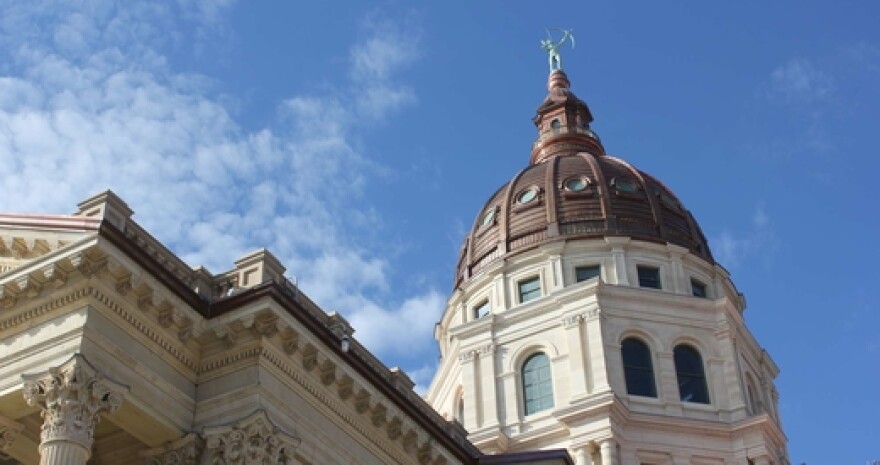Kansas lawmakers are preparing to open their annual session facing a court mandate to boost spending on public schools but with little appetite to do what might be necessary to pay for it.
The Republican-controlled Legislature was scheduled to convene Monday afternoon for short, mostly ceremonial meetings to start the traditional 90-day clock. GOP Gov. Sam Brownback, who is waiting to depart for an ambassador's post, will give the annual State of the State address Tuesday evening and lay out budget proposals Wednesday.
The big question ahead of Brownback's speech was what he will propose in response to the state Supreme Court's ruling in October that Kansas' total aid to its 286 school districts of about $4.3 billion a year is insufficient under the state constitution. Brownback promised to have a plan, but he hasn't divulged any of its details.
Many legislators, particularly Republicans, are frustrated because they approved a school funding law last year that phased in a $293 million aid increase over two years. Lawmakers raised income taxes by roughly $600 million a year to help pay for it and balance the state budget, overriding Brownback's veto of a bill that rolled back past tax cuts he had championed.
"It's a tough process," Brownback told The Associated Press on Friday. "It will be a difficult topic."
Lawmakers returned to Topeka with their leaders looking to overhaul a legislative policy against sexual harassment. It hasn't been changed since 1994 and doesn't require annual training for lawmakers or their employees. The Women's Foundation, a Kansas City, Missouri, group that promotes gender equity, recommended such training last month as part of a broader overhaul of the policy.
Legislative leaders initiated a review after the ex-chief of staff for a former Democratic leader announced in October that a lawmaker propositioned her for sex in 2015 and that female college-student interns regularly served as after-hours designated drivers for intoxicated lawmakers in 2016.
Top lawmakers said Monday that they expect to offer training for all 40 senators and 125 House members within a few weeks.
Meanwhile, leaders were hoping for a fast start on education funding.
The state Supreme Court also said that parts of the school finance law that pertain to how funds are distributed are unfair to poor school districts, but lawmakers expect to wrestle most with how much to increase spending. The court did not set a specific figure but hinted that it expects aid to rise by as much as $650 million a year.
"My legislators are repulsed at the thought of another tax increase," said Senate President Susan Wagle, of Wichita, referring to her fellow Republican state senators. "It's not going to happen."
Democrats also hesitated to embrace additional taxes, with Sen. Pat Pettey of Kansas City, pinning some hopes on better-than-expected tax collections over the past seven months.
Legislators in both parties also are put off by the idea of big cuts in spending on universities, social services and public safety so that the dollars can be shifted to public schools.
"There's not an easy fix, either the revenue side or on the budget side," said House Majority Leader Don Hineman, a Dighton Republican.
Brownback's future creates an additional complication. He and legislators don't know when he'll resign, elevating Lt. Gov. Jeff Colyer to governor.
President Donald Trump nominated Brownback as U.S. ambassador-at-large for international religious freedom in July. But the U.S. Senate did not vote on his confirmation by the end of the year, requiring him to be nominated again. The delay has led to an awkward transition period.




